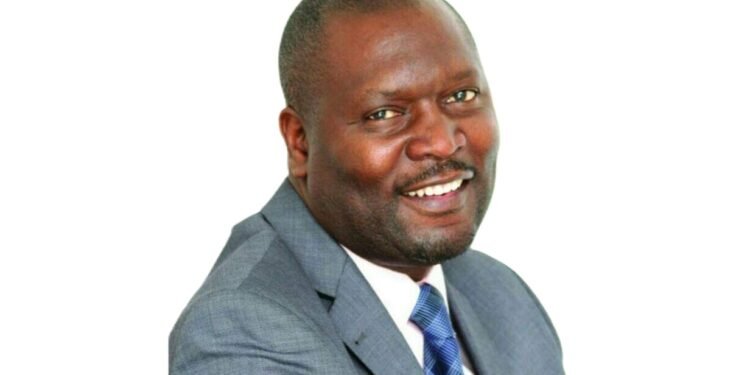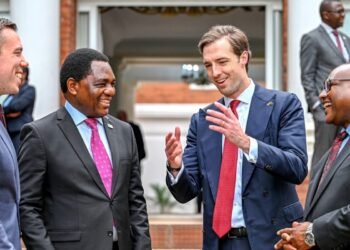A covenant, not a gift: Why the Constitution must belong to the people, not politicians
By Dr Lawrence Mwelwa
A CONSTITUTION is not a decree. It is a covenant – a sacred social contract between the governed and those who govern. When presidents or parliaments treat it as a political gift, the very foundation of democracy begins to crack. Zambia stands again at this crossroads of destiny.
We must learn from history. From Chona to Silungwe, every constitutional journey has begun in hope and ended in frustration. The common denominator has always been political interference. True constitutionalism requires restraint, humility, and respect for the sovereignty of the people. It is not written by power but by conscience.
In an ideal republic, a Constitutional Review Committee should not be appointed through presidential discretion alone. It must emerge from consultation, built on the principle of collective authorship. The people must feel they are not being invited to comment, but to co-create.
The Committee must be diverse yet principled – composed of legal scholars, constitutionalists, clergy, civil society actors, and professional associations. The Law Association of Zambia (LAZ), the Church Mother Bodies, and constitutional watchdogs like Chapter One Foundation must have guaranteed seats at the table.
Their inclusion must not be symbolic. It must be anchored in law, under an enabling statute passed by Parliament, defining their role, tenure, and independence. Only then can we insulate the process from executive capture and partisan manipulation.
A Constitution-making process without LAZ is like surgery without a doctor. The expertise of constitutional lawyers provides the spine of legality, while the moral authority of the Church gives it soul. Civil society must be the conscience, ensuring every clause resonates with justice and equality.
The road map should begin with a National Constitutional Conference of Stakeholders, convened within the first sixty days. Its purpose would be to set the Terms of Reference (TORs), adopt the code of conduct, and select the Technical Committee through consensus, not political appointment.
The Committee must then embark on a Nationwide Consultation Phase, traveling to every province, from Chienge to Sesheke, from Kaputa to Shang’ombo. This is not a symbolic tour – it is the act of restoring ownership to the people. A Constitution that ignores the margins will collapse at the center.
After consultations, a Drafting Phase should follow, guided by three cardinal principles: inclusivity, simplicity, and supremacy of the people’s will. Every article must pass the test of necessity – does it protect, empower, or restrain power? If it does not, it does not belong.
Once a draft emerges, a National Convention of Delegates should be called to debate and refine the document. Delegates must include chiefs, youth, women’s movements, professional bodies, opposition parties, and independent experts. Parliament should not dominate this process; it should only legitimise it.
The Final Draft must then be subjected to a National Referendum, where every Zambian has the sacred right to say yes or no. A Constitution that is not tested at the ballot of the people cannot claim the moral title of being “people-driven”.
To safeguard integrity, the Terms of Reference must prohibit the Committee from altering people’s submissions without justification. Every edit must be transparent, documented, and explained publicly. This principle of “traceable authorship” ensures accountability and curbs political distortion.
Funding must be independent of the Executive. The Committee’s secretariat should report to Parliament, not State House, and its accounts audited by the Auditor General. Financial autonomy protects intellectual freedom. A Constitution cannot be born under financial blackmail.
Philosophically, constitutional democracy rests on the tripod of legitimacy, limitation, and liberation. Legitimacy gives rulers their right to govern; limitation reminds them that power must be restrained; liberation ensures that citizens are protected from both state and private domination.
Thus, the President’s role must be protective, not participatory. He must guarantee security, resources, and transparency – but abstain from interference. To “own” the process is to corrupt it; to “guard” it is to sanctify it.
Constitutional reform must never be rushed. The pressure of time must never outweigh the depth of truth. A process hurried for elections will produce a political document, not a constitutional covenant. We have walked that path before – it leads only to cynicism and decay.
The Technical Committee must operate with intellectual freedom. It should have access to comparative constitutions – from Kenya, South Africa, Ghana, and Namibia – learning from their models of devolution, human rights, and judicial independence. But it must not copy; it must contextualise.
Transparency must be absolute. Every meeting, submission, and draft must be public. A digital portal should be established to publish all proceedings in real time, inviting commentary from citizens and diaspora alike. Democracy must be visible.
Special attention must be paid to the Bill of Rights. Economic, social, and environmental rights must be entrenched alongside civil and political freedoms. The Constitution must reflect modern justice – climate justice, gender equality, and digital rights among them.
In the spirit of equity, the Constitution must decentralise power. Provincial assemblies, independent councils, and community courts must be strengthened. Centralised power breeds corruption; devolved power breeds accountability. The people must govern where they live.
The rule of law must remain non-negotiable. No clause should shield leaders from accountability. No Article should place one office above another. The President, the Speaker, and the Chief Justice must be bound equally by law – no exceptions, no sacred cows.
Bill 7 must not sneak into this sacred process. Any attempt to constitutionalise political manipulation must be resisted by the Committee and condemned by the nation. A Constitution that serves rulers, not citizens, is an instrument of tyranny.
Above all, the process must restore dignity to the people. Farmers, miners, students, and workers must see their struggles reflected in the text. A Constitution that does not feed the hungry or protect the weak is a hollow promise.
Let the Committee listen to the voices from the margins – the widow in Chama, the fisherman in Mongu, the youth in Kanyama. Their pain and hope must be the ink of the new Constitution.
If the President truly means well, he must assure the nation that all court rulings will be respected and no political interference tolerated. The rule of law is not optional – it is the air democracy breathes.
Zambia’s future depends on this moment. We have a chance to build a Constitution that heals wounds, reconciles communities, and anchors hope for generations unborn. Constitutions are not written for the powerful – they are written to protect the powerless.
The Constitution must belong to the people, not politicians. It must be a covenant, not a gift. Let us not waste this sacred opportunity again.

























